Being a first time home buyer is an exciting experience, but it can also be a little overwhelming. Between mortgage rates, budget restrictions, and the hunt for the perfect location, there’s going to be a lot to consider. The following list will help you narrow your focus so that you can enjoy the exciting aspects of buying a home without all the anxiety.
1) What’s More Important: Location or Square Footage?
When you’re buying a home, you’ve got to consider this question carefully. If you want a lot of space on a strict budget, you might have to live farther away from densely populated cultural hubs. However, if you’re committed to buying a swanky new pad in Seattle, you’re going to have to pay more for less space. This isn’t to say that you’ll either have a mansion in the middle of nowhere or pay an exorbitant sum to live in a minuscule cupboard in Bell Town; rather, it’s just important to realize that you may need to make some sacrifices, and so it’s a good idea to decide whether you want to prioritize location or size before making a purchase.
2) Build a Better Budget
A house is a big investment, and that investment doesn’t just include the actual cost of the house. Many housing experts suggest that prospective home buyers have at least 20% of the home’s cost available to use for the down payment, but don’t view this sum as a prerequisite. Many people purchase houses without the initial 20% lump sum. In any case, houses often come with some hidden, or at least relatively covert, fees beyond mortgage rates, so you’ll need to budget, whether you have the 20% or not.
Basically, every new homeowner should create a responsible monthly budget that will allow you to cover costs, both seen and unforeseen, for the future. Craft a budget that will help you pay your bills and live comfortably, even if you’re out of work for a month or two. While this process may seem intimidating, there’s no need to panic. You don’t need to go to extremes and plan for the Apocalypse (although you should feel free to do so, if you really want to); instead, just take the time to build some cushion into your budget to cover unexpected expenses.
3) Fixed-Rate or Adjustable-Rate Mortgage?
You don’t need to be an expert to answer this question, but you should know the differences between fixed-rate and adjustable-rate mortgages. An ARM will start low, but it will inevitably change over time, hence the use of the term “adjustable.” Thus, while an ARM may begin with unbelievably low rates, it has the potential to increase. A FRM is stable and will stay the same, making it easier to factor into your budget and plan for the future. However, an ARM could actually be the better option if you’re not planning to live in your home for long, making it easier to capitalize on a temporarily low interest rate.
4) Inspect your Home Thoroughly
Nothing is worse than discovering ghastly structural flaws shortly after moving into a new home. Imagine, for instance, the giddy terror you might experience when you realize that your home’s main plumbing line has burst and is energetically spewing sewage over your lawn. Or, even worse, consider the consternation you might feel when you realize that the ominous yellow stain on the ceiling is a result of a shoddily installed bathtub in the upstairs restroom.
Obviously, these nightmarish situations are extreme, and you shouldn’t worry about running into them. If there are potential flaws in a home, they’re much more likely to be smaller and more manageable. In any case, it’s important to realize that hidden problems will cost extra money. Luckily, they’re also easily avoidable if you carefully inspect a house to ensure that you’re aware of any potential complications before making a deal.
5) Consider the Benefits
Buying a house is a large investment and, like any investment, it comes with potential frustrations. That said, the benefits of buying a home often make it a better (and cheaper) option than renting. Consider, for instance, that Forbes estimates buying a house is about 38% cheaper than renting, largely because 30 year fixed rate mortgages have recently decreased from 4.8% to 4.3%. Additionally, while both rent and purchase prices are continuing to rise, purchase prices are currently rising at a slower rate than the cost of rent.
Apart from financial considerations, owning a home allows you to create and cultivate a personalized and unique living space. You’ll have a permanent residence, an extension of yourself, an external yet intimate record of your family’s many comings and goings. All in all, while buying a home can be intimidating and overwhelming, its many benefits ultimately make it a responsible investment for many years to come.

